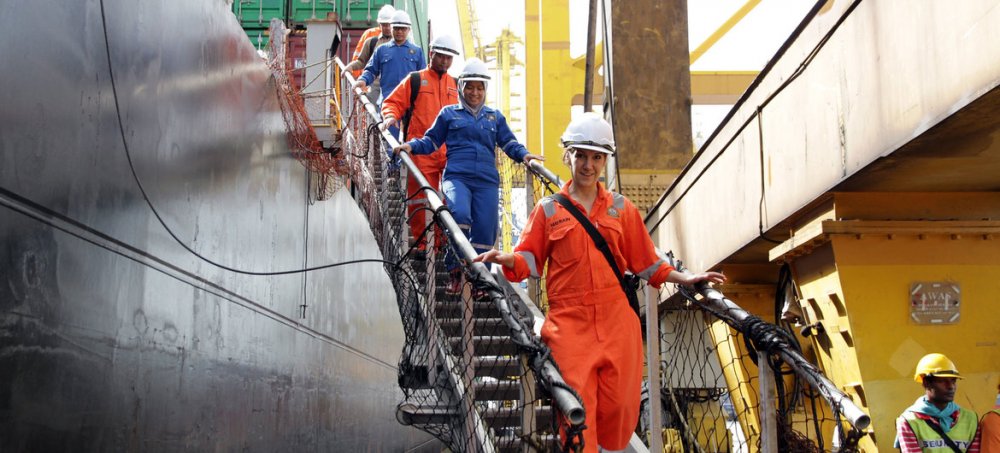
“Checklists remind us of the minimum necessary steps and make them explicit. They not only offer the possibility of verification but also instill a kind of discipline of higher performance.”
A Human Rights Due Diligence checklist for the maritime industry was launched on the 6th of May, 2021. This tool aims to assist the upholding of human rights at sea, in accordance with the UN Guiding Principles issued during the Covid-19 crew change crisis. This initiative saw the joining of forces of the UN Global Compact, the UN Human Rights Office, the International Labour Organization (ILO) and the International Maritime Organization (IMO), amid rising concerns of an upcoming escalation of the crew change crisis, as a result of new virus variant outbreaks spreading across the globe.
Breaching human rights
The number of crew stranded at sea beyond their contracts is currently around 200,000 and the possibility of tightening travel restrictions may lead to the September 2020 highs of 400,000. With the Maritime Labour Convention (MLC 2006) setting a maximum limit of 11-month contracts, working at sea beyond this period constitutes a safety hazard to the physical and mental wellbeing of seafarers, while triggering a ripple effect of worrisome consequences such as navigational safety and beyond. Evidently, in breach of fundamental human rights such as access to family life, access to medical care, consensual labour and freedom of movement.
An important step forward
Described by IMO Secretary General Kitack Lim, as an ongoing humanitarian crisis at sea, the crew change crisis, “has led to hundreds of thousands of seafarers being denied repatriation, crew changes, shore leave and ultimately being forced to stay working on ships long beyond their contract. This tool is an important step forward, providing a practical approach for cargo owners, charterers and logistic providers to consider the human rights of seafarers…”
What does this mean for maritime supply chain actors?
The document defines the actors of the maritime supply chain as (1) cargo owners & interests, (2) suppliers of services and (3) charterers. It provides a practical breakdown of how each can practice due diligence to identify and best practises to prevent and mitigate any adverse human rights impact on seafarers, caused by crew change restrictions. Furthermore, the checklist provides guidelines of relevant stakeholders, as well as an actual case study of how a fashion retailer applied these principles to its own supply chain.
The 4-step road map outlines: assessing impacts, integrating and taking action, tracking performance and communicating accordingly. Among other, cargo owners and charterers must clearly set out expectations from their business partners, by ensuring that contracts are not extended beyond 11-month periods, seafarers consent to any extension thus preventing forced labour, strict adherence to MCL 2006 standards, closer corporation with the ITF and ICS, familiarization with IMO Covid-19 protocols, upholding minimum safe manning requirements, screening supplier policies and highlighting within their own communications the importance of ticking off the checklist as actionable targets.
Crew change advocates
Furthermore, one of the most important actions introduced is the call for all actors to advocate for and support necessary crew changes. Urging cargo owners and business partners to be flexible in light of route deviations which facilitate crew changes and emphasizing the need for dismissal of the “no crew-change clauses” from existing and future charter parties; such clause constituting a vivid example of undue pressure being exerted on the maritime industry in breach of seafarers’ rights.
The crew change crisis affects us all, it is therefore crucial that supply chain actors make impactful use of the tool. Ensuring that this is not just another checklist and creating a new discipline of higher performance when it comes to safeguarding human rights at sea.
Photo: IMO

